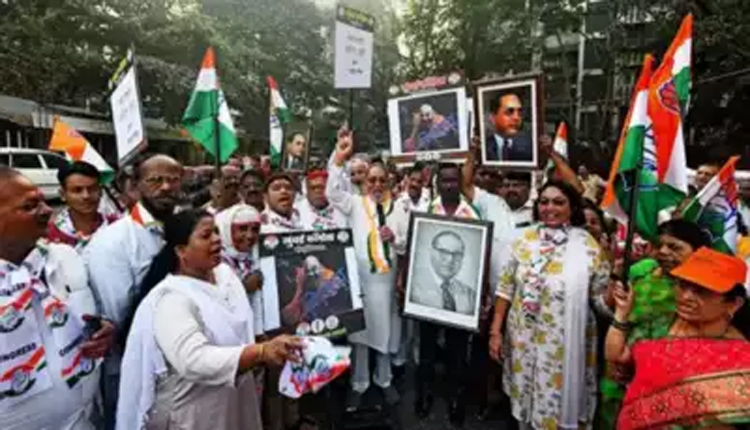New Delhi: Dr. B.R. Ambedkar and the Constitution have become the focal point of a political controversy that has seen glimpses of intensity with the additional facet of the recent utterances pertaining to the topic by Shankaracharya Swami Avimukteshwaranand of Jyotish Peeth. The spiritual leader, during an exclusive interview with TV9 Bharatvarsh, not only put forth his views on the efficacy of India’s reservation policy, which he claimed has not met its goals even after 78 years, but also refused to entertain any thoughts of the positive effects the policy had on the society.
The argument has brought back to the surface a long-debated question: Was the reservation system really designed to run for just 10 years? The historical context gives a more balanced perspective. At the start, the political reservations were earmarked for a ten-year review period, while there were no deadlines for job reservations related to Scheduled Castes and Scheduled Tribes.
Christopher Jaffrelot, a biographer of Ambedkar, puts forth that the clause of ten years concerned solely the political reservations, which could be extended based on demographic ratios. The debates that were conducted in the Constituent Assembly show that the idea of government job reservations was readily accepted; however, the subject of political reservations was contested strongly.
The controversy has triggered a nationwide outcry, with the Congress party protesting in Uttar Pradesh, Madhya Pradesh, Bihar, Rajasthan, Assam, Jharkhand, and Jammu & Kashmir. The party asks for an apology and the resignation of the home minister for his speech in the parliament on December 18 about Ambedkar during a constitutional discussion.
The BJP has given its robust counterstrike, showing all the top officials to break Congress’s viewed reality. Congress has been accused of a long-time disregard of Ambedkar, and examples are cited of his lost election during the Nehru Era, besides the delay in the award of the Bharat Ratna.
The point of discussion has moved on from being just a matter of historical interpretation to becoming a real political struggle, where the two major political parties assert that they are the only defenders of Ambedkar’s teachings and constitutional values.



Comments are closed.